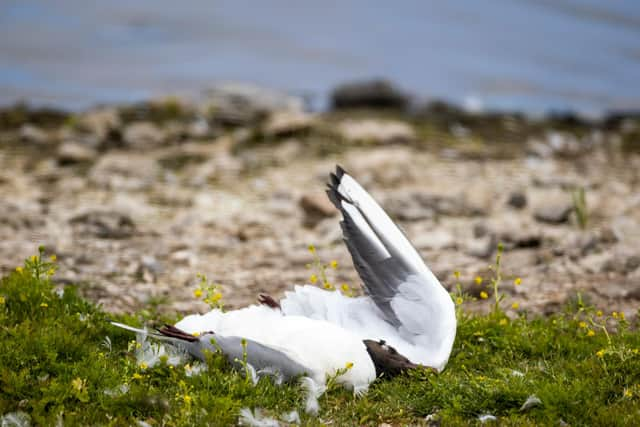Bird flu Northern Ireland: UFU and DAERA confirm Avian Influenza has now become a year round threat - and not just a winter problem
and live on Freeview channel 276
The first confirmed case of bird flu infecting mammals in NI was confirmed by Stormont's Department of Agriculture Environment and Rural Affairs (DAERA) on Friday.
The virus was detected in two fox cubs, as well as in wild birds in Portrush.
Advertisement
Hide AdAdvertisement
Hide AdThe virus does not pose a significant risk to humans, however there are concerns about the impact on NI’s poultry industry, which had a £830 million turnover in 2021 and employs 5,500 people. The eggs sector would employ a further 1000.


In Mid-April DAERA lifted a winter ban on poultry going outside, which had been aimed at stopping them mixing with wild birds.
UFU Chief Executive Wesley Aston said the new threat is that the virus is now present across throughout the summer.
"This is just something that we feared was going to happen and now it has materialised," he told the News Letter. "Now it is up to us to do all we can to make sure it doesn't develop into anything."
Advertisement
Hide AdAdvertisement
Hide AdHe urged poultry farmers to keep tight control on who accesses their flocks and to make sure all footwear is disinfected when accessing them.
"It is now a year round threat - that is the concern - and we just don't know the impact that may have, particularly on free range poultry and eggs until we see how it develops."
He noted that there had been problems in maintaining the branding of free range eggs and poultry before when birds had to be kept indoors, and there is a concern that this could happen again.
A DAERA spokeswoman said: “Whilst there is no evidence to suggest that AI (Avian Influenza) is indigenous in the local bird population, there has been a change in the circulation of AI in the wild bird population since 2022, with cases continuing throughout the summer months as well as winter across the UK, Republic of Ireland and in Europe.
Advertisement
Hide AdAdvertisement
Hide Ad"However, most wild bird cases during summer 2022, and in recent months, have been confirmed in sea birds which, with the exception of gulls, tend to have less interaction with resident wild birds and are less likely to contact commercial and backyard flocks.
“The recent detections in Black Headed Gulls are a particular concern as it is possible that they act as a ‘bridge’ between other species of domestic birds, which may indeed increase the risk of further spread of HPAI (Highly Pathogenic Avian Influenza) to kept poultry.
"As a result the likelihood of an avian influenza incursion into poultry was increased from very low during the spring to low and the department keeps under regular review the veterinary risk assessment and options at its disposal to further reduce the risk of incursions into poultry."
Farming Life journalist Richard Halloran said: "Over recent months UK-based multiple retailers, including Morrisons, have sought to secure an increasing share of their free range eggs from Northern Ireland. This development represents a welcome opportunity for local poultry farmers. But only if they remain clear of HPAI."
The UFU and DAERA urged anyone who suspects the presence of the virus in birds to report the matter urgently at www.daera-ni.gov.uk/ai